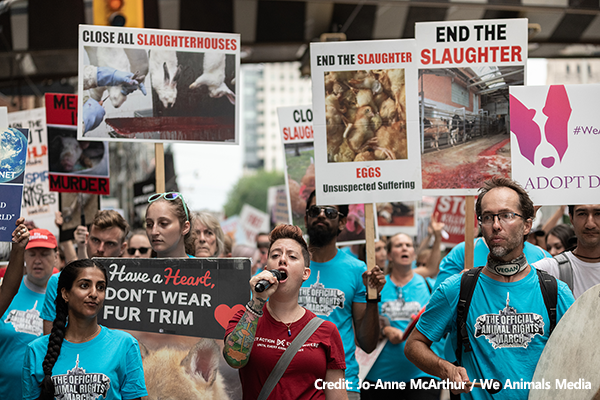[2차회의] 영국 동물복지법 제18조~제24조 발표자료
페이지 정보
본문
영국 동물복지법 제18조~제24조 발제 자료입니다.
첨부파일
- 영국동물복지법18-24조.pdf (270.4K) 23회 다운로드 | DATE : 2023-04-15 20:08:04
- 이전글영국 동물복지법 번역 프로젝트 2회자 모임 영상 링크 23.04.15
- 다음글동물복지 규정 (동물 영업 활동 관련 라이선스 제도) 2018 23.04.15
댓글목록
MIAA님의 댓글
 MIAA 작성일
MIAA 작성일
제가 잘 이해하지 못했던 부분이, 제22조 'exercisable'의 의미인데요, 저는 'exercisable'이 '물리적으로 집행이 가능한' 이런 뜻으로 추측했습니다. Chat GPT 에게 물어봤더니 이렇게 답변을 주었습니다.
In the context of the Animal Welfare Act 2006 UK, "exercisable" refers to the legal authority or power that a constable has to seize an animal.
For example, if a constable reasonably believes that an animal has been involved in an offence related to animal fighting, they can use their power to seize the animal. The power to seize the animal is "exercisable" because it is available to the constable to use in this particular situation.
The term "exercisable" does not depend on the size or type of animal. Instead, it refers to whether the constable has the legal authority or power to take action in a given situation, based on the circumstances and their reasonable belief about the animal's involvement in an offence.
결론적으로, 제22조 (2)를 다시 해석해보자면,
(2) 경찰은 다음과 같은 경우 (1)항에 따른 권력을 행사하기 위한 목적으로 장소에 출입하거나 수색할 수 있다.
(a) 장소에 동물이 있다고 합리적으로 믿을 만한 경우
(b) 그 동물이 (1)항에 따른 권력을 행사할 수 있는 동물(동물싸움에 관련된 것으로 판단되는 동물)이라고 합리적으로 믿을 만한 경우
이렇게 해석하는게 맞을 것 같습니다.
참고하세요~
MIAA님의 댓글
 MIAA 작성일
MIAA 작성일
제20조(3) 관련해서 소유주가 동물을 학대한 경우, 소유주가 법원에 치료 명령을 요청하는 건 말이 안되는게 아니냐, 제20조(3)(a)는 어떤 역할이냐고 질문을 해보았습니다.
In 2018, a dog owner named Mary Smith took her dog, a terrier named Max, to the vet because he had been vomiting and had diarrhea. The vet diagnosed Max with a bacterial infection and prescribed antibiotics. However, Smith did not follow the vet's instructions and did not give Max the full course of antibiotics.
A few weeks later, Max became seriously ill and was taken to the vet again. This time, he was diagnosed with a severe infection and had to undergo surgery. The vet reported the case to the RSPCA, and Max was taken into their care.
At a hearing, Smith applied for a court order under subsection (3)(a) to have Max returned to her care. She argued that she had not realized how serious Max's condition was and that she had not intended to cause him harm.
However, the court refused Smith's application and ordered that Max be rehomed with a new family. The court found that Smith had neglected Max's medical needs and that she was not a responsible owner.
In this case, the owner of the animal (Mary Smith) applied for a court order under subsection (3)(a) to have her dog returned to her care. However, the court refused her application because they determined that she was not a responsible owner and had neglected her dog's medical needs.
이 정도 사례를 찾아 볼 수 있네요(정확한 사건번호 등은 Chat GPT 도 모른다고 합니다....)
참고하세요~

